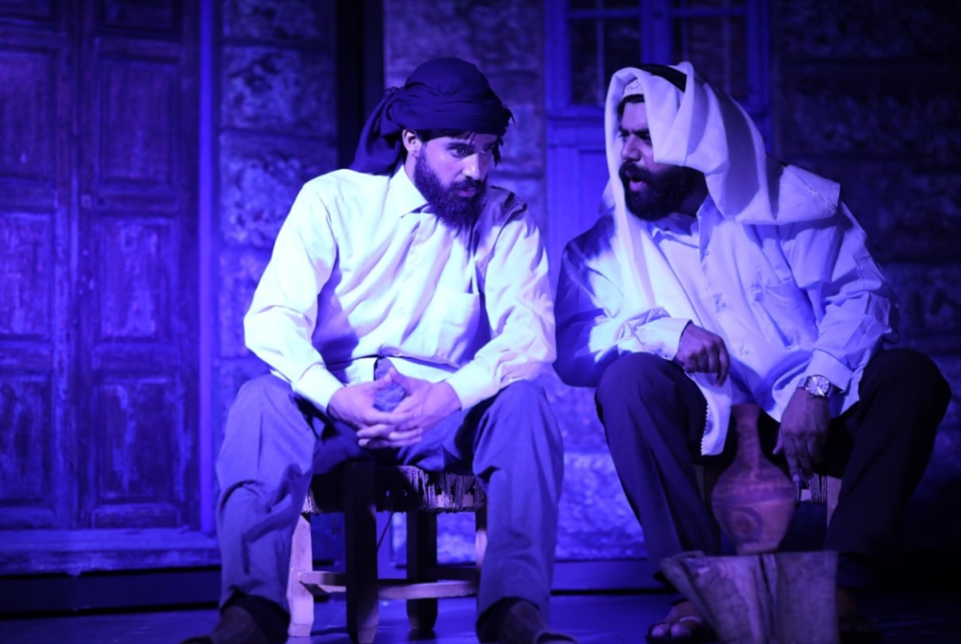The author tells the biography of the Islamic Resistance since its inception, by four young people preparing in 2022 a film about the history of the resistance from the moments of fear experienced by southerners before the existence of the resistance, to during the liberation of southern and western Bekaa in 2000, which became known as the first liberation, which led to victory against the Takfirists and raised the yellow flag of resistance outside, or “the second liberation”.
Writer Nisrin Idris has found no better narrative sentence to show the path taken by the Resistance than to throw it into a biography of one of its heroes and members of the first generation here, the “Sheikh of the Resistance” , a martyr. Ahmed Yahya (Abu Dhar), so that the person can be identified collectively and privately in public, and the recipient can better understand the causes and how the resistance went through the stage of power and strength in which it lives today. , based on the spirituality possessed by his children, and the degree of readiness of the whole family of their different generations to give without restrictions.
The timeline of the Abu Dhar family goes back to the martyrdom of his father who was a tobacco farmer, Haji Hamad Yahya, during the first invasion in 1978 at the hands of enemy forces who abducted him from his farm in the city of Rashaf and proceeded to killing him and being thrown out. his body in a well, in one of the many crimes committed by the enemy against the backdrop of impotence. Full for families about revenge, revenge and confrontation, as well as the possibility of initial intimidation, the forced relocation of the family to Beirut and the departure of the martyr to work to support the family in connection with his education at university, then his participation in the famous battle hero of Khalda and his subsequent departure to the city of Qom in Iran to study religious sciences in 1982. Before returning to participate in the fight, insisted that he was a warrior and not merely a reporter on the front, like other religious scholars, in the grief he had experienced at the impending liberation, as he thought the opportunity for martyrdom, which he had so long missed, and the famous story of his advice at the time to the Secretary General of Hezbollah, Mr. Hassan Nasrallah, during a meeting with him in memory of one of the martyrs in the city of Badaniel in Beqaa, for refusing him to conduct a martyrdom operation so that his share of martyrdom came on May 25, 2000 after he was attacked. He was wounded outside his hometown of Rashaf, which participated in his release on May 22 of the same year.
The work was completed by the third generation in the Yahya family and in the family of resistance itself, represented by the son of the martyr “Ali”, who inherited from his father his calm, awareness, gentleness, humility, desire to fight , desire. for martyrdom. , and even his jihadist name “Abu Zar”. He was martyred in 2015 by the Takfirites in the Beqaa Valley. Coincidentally, the day of his martyrdom was also the twenty -fifth of May!
The number of actors in the “Timeline” is limited to four single to hold all roles at different times presented in the work, starting with the current season, when four were friends, including writer and director , talks about the best way to make a film that tells the biography of the fight, up to the time of the fight, and then up to the time of the fight. And the liberation, until the time of the war with the Takfirites, and four actors-Muhammad Khamis (Mustafa / director / leader of the resistance), Ali Al-Reda Sbeiti (Haider / actor / Axis of Operations officer), Muhammad Kandoli (Rabbi /writer/martyr Sheikh Abu Dhar and his father and son), Muhammad Musa (Hamza/actor/resistance).
The actors did what was asked of them and presented Nisrin Idris ’text on stage in the best possible way, some of them arranging short-lived ideograms and comic flickers in dialogues related to the modern line of work, namely which, in order to break its intensity and add a little intellect, which, of course, cannot be conveyed elsewhere in the play. connected the chapters of the play to each other through documentary scenes showing the missing parts of the path of the resistance, thus, which added little expression to the work, but this is understood and justified because on the need to reduce time. . correct chronology of events simultaneously.
According to actor and director Mohamed Khamis, one of the heroes of Timeline, the show will soon move to different regions of Lebanon, to be announced later and the date of its show.
Source: Al-Akhbar
